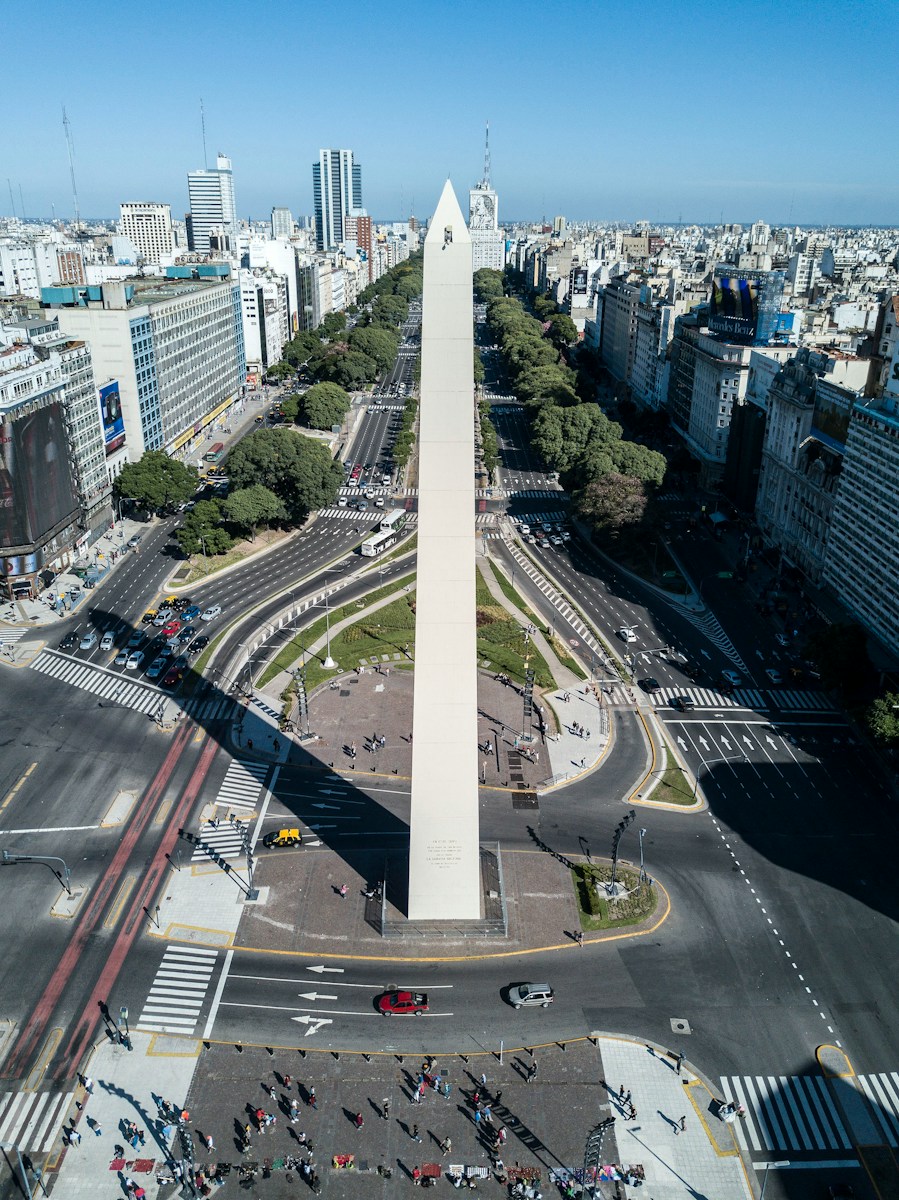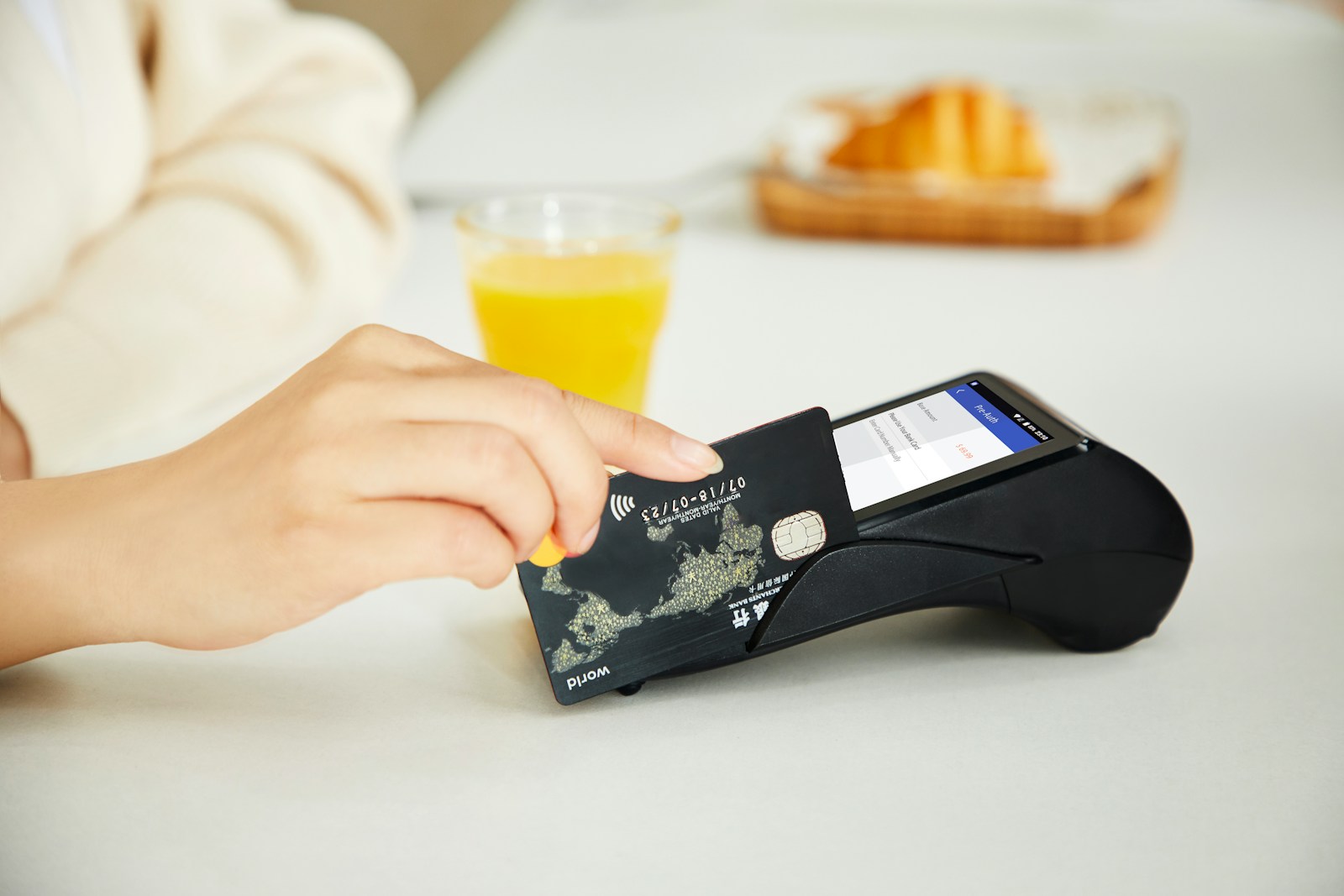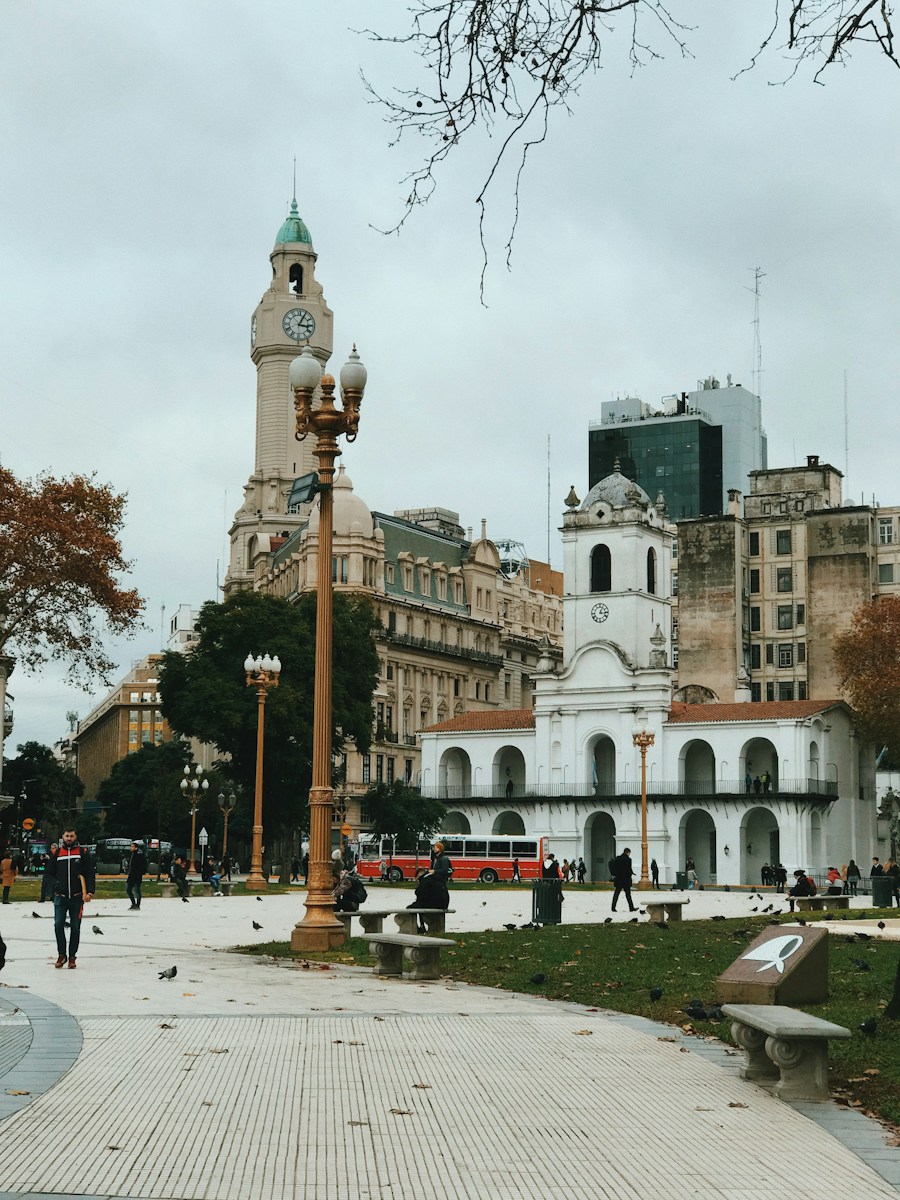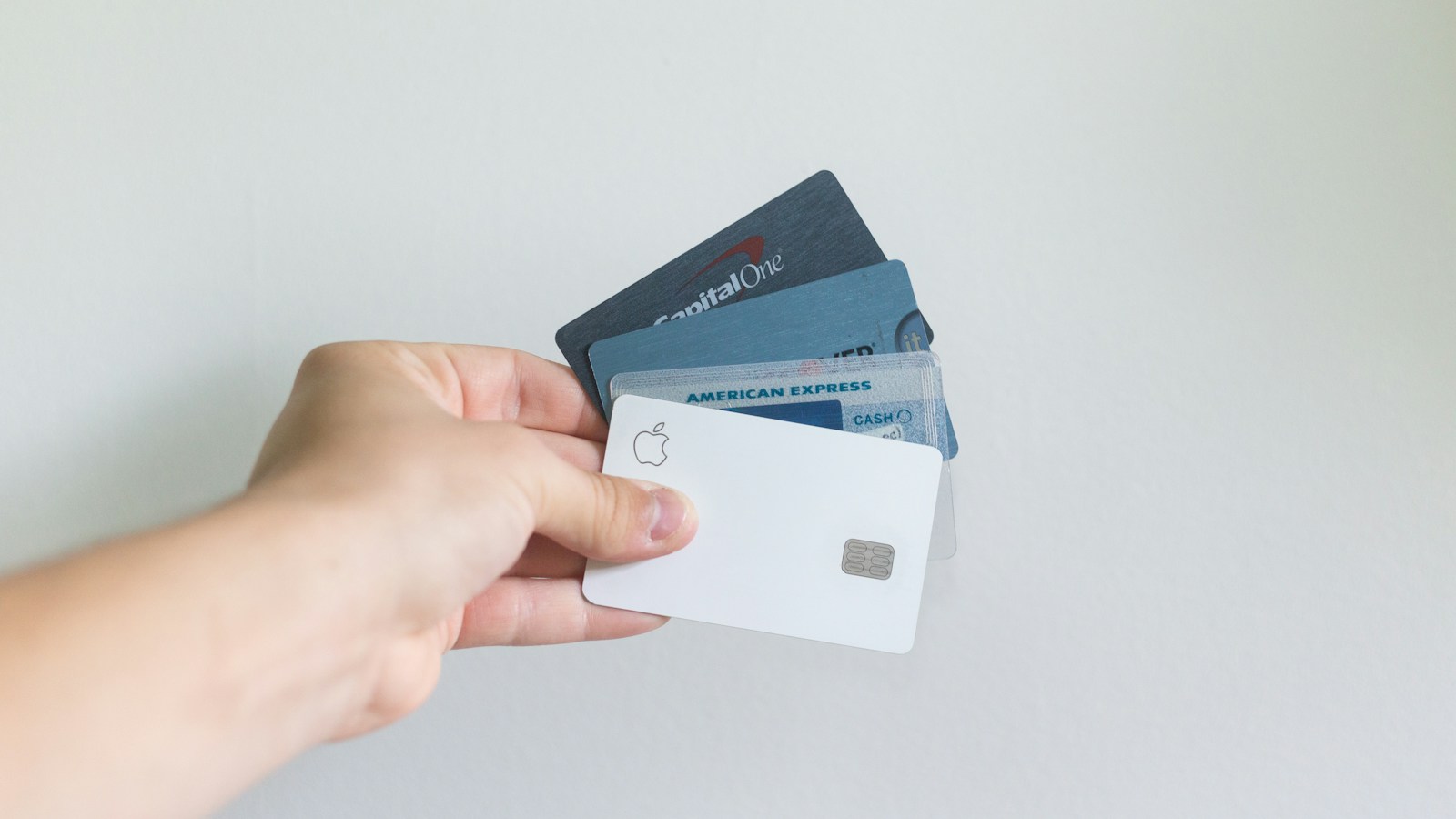Unlock the Secrets of Argentine Currency: Your Ultimate Money Guide for Tourists and Business
Table of Contents
Introduction: This is How You Pay in Argentina
Introduction: When visiting Argentina as a tourist or conducting business, it is essential to familiarize yourself with the country's payment methods. Understanding how to pay in Argentina will ensure a smooth and hassle-free experience during your stay. This money guide provides an overview of the various payment options available, including cash, credit cards, and mobile payments, to help you navigate the Argentine payment landscape.
Understanding the Currency Exchange System in Argentina

Argentina is a beautiful country with a rich culture and vibrant cities. Whether you are visiting as a tourist or conducting business, it is important to understand the currency exchange system in Argentina. This guide will provide you with all the information you need to know about paying in Argentina. The official currency of Argentina is the Argentine Peso (ARS). It is important to note that the exchange rate for the Argentine Peso can fluctuate, so it is a good idea to check the current rate before your trip. You can easily find this information online or at a local bank. When it comes to exchanging your money, there are several options available to you. One option is to exchange your currency at a bank. Banks in Argentina typically offer competitive exchange rates, but they may charge a commission fee for the service. It is a good idea to compare rates and fees at different banks to ensure you are getting the best deal. Another option is to exchange your money at a currency exchange office. These offices are often found in tourist areas and offer convenient hours of operation.
While the exchange rates at these offices may not be as favorable as those at banks, they are still a viable option if you need to exchange money quickly. If you prefer to use your credit or debit card while in Argentina, it is important to notify your bank before your trip. This will prevent any issues with your card being blocked due to suspicious activity. Most businesses in Argentina accept major credit cards, but it is always a good idea to carry some cash with you for smaller establishments that may not accept cards. When using your card, be aware that some businesses may charge an additional fee for credit card transactions. This fee is usually a percentage of the total purchase amount. It is a good idea to ask about any additional fees before making a purchase to avoid any surprises. ATMs are widely available in Argentina and are a convenient way to withdraw cash.
However, it is important to be cautious when using ATMs, especially those located on the street. Look for ATMs that are located inside banks or in well-lit areas to minimize the risk of theft. When withdrawing cash from an ATM, be aware that there may be a limit on the amount you can withdraw per transaction. Additionally, some ATMs may charge a fee for withdrawals. It is a good idea to check with your bank to see if they have any partnerships with banks in Argentina that may waive these fees. In conclusion, understanding the currency exchange system in Argentina is essential for both tourists and business travelers. Whether you choose to exchange your money at a bank, currency exchange office, or use your credit or debit card, it is important to be aware of any fees or charges associated with these transactions. By being prepared and informed, you can ensure a smooth and hassle-free experience when paying in Argentina.
Tips for Using Credit Cards and Debit Cards in Argentina
Argentina is a beautiful country with a rich culture and vibrant cities. Whether you're visiting as a tourist or conducting business, it's important to know how to navigate the local currency and payment methods. In this article, we'll provide you with some helpful tips for using credit cards and debit cards in Argentina. First and foremost, it's essential to inform your bank or credit card company about your travel plans. This will prevent any unexpected issues or holds on your cards while you're in Argentina. It's also a good idea to inquire about any foreign transaction fees that may apply to your card. Being aware of these fees will help you budget accordingly and avoid any surprises when you receive your statement. When it comes to credit cards, Visa and Mastercard are widely accepted in Argentina. American Express is also accepted in some establishments, but not as commonly as the other two. It's always a good idea to carry multiple cards with you, just in case one is not accepted or encounters any issues.
While credit cards are generally accepted in larger establishments such as hotels, restaurants, and shops, it's important to note that smaller businesses and local vendors may prefer cash. Therefore, it's advisable to always carry some Argentine pesos with you for smaller purchases or when visiting more local establishments. When withdrawing cash from ATMs, it's important to be cautious and use machines located in well-lit and secure areas. It's also a good idea to withdraw larger amounts of cash to minimize transaction fees. However, be mindful of carrying too much cash on you, as it can make you a target for pickpockets. It's always a good idea to split your cash and keep it in different places on your person or in a secure money belt. Another important tip is to be aware of the daily withdrawal limits imposed by your bank. Some ATMs in Argentina may have lower limits than what you're used to, so plan accordingly to avoid any inconvenience. In terms of security, it's advisable to keep an eye on your credit card during transactions and ensure that it is swiped in front of you. This will help prevent any fraudulent activity. Additionally, it's a good idea to regularly check your credit card statements for any unauthorized charges.
Lastly, it's worth mentioning that contactless payments, such as Apple Pay or Google Pay, are not as widely accepted in Argentina as they may be in other countries. Therefore, it's best to have a physical card with you for most transactions.
In conclusion, using credit cards and debit cards in Argentina can be a convenient and safe way to make payments. However, it's important to inform your bank about your travel plans, be aware of any foreign transaction fees, and carry some cash for smaller purchases. By following these tips, you'll be well-prepared to navigate the local payment methods and enjoy your time in Argentina without any payment-related hassles.
Exploring the Use of Cash and ATMs in Argentina

Argentina is a beautiful country with a rich culture and vibrant cities. Whether you're a tourist exploring its wonders or a business traveler attending meetings, it's essential to know how to pay for your expenses. In this money guide, we'll explore the use of cash and ATMs in Argentina, providing you with valuable information to make your transactions smooth and hassle-free. When it comes to paying in Argentina, cash is still king. While credit and debit cards are widely accepted in larger establishments, many smaller businesses and local vendors prefer cash. Therefore, it's always a good idea to carry some Argentine pesos with you. You can exchange your currency at banks, exchange offices, or even withdraw cash from ATMs. Speaking of ATMs, they are readily available throughout Argentina, especially in major cities like Buenos Aires. However, it's important to note that not all ATMs accept foreign cards. To avoid any inconvenience, look for ATMs with the “Visa” or “Mastercard” logos, as they are more likely to accept international cards. Additionally, keep in mind that some ATMs have withdrawal limits, so plan accordingly. While using ATMs is convenient, it's crucial to be cautious of your surroundings and take necessary precautions to protect your personal information. Always use ATMs located in well-lit and busy areas, and cover the keypad when entering your PIN. It's also advisable to notify your bank about your travel plans to avoid any issues with your card being blocked due to suspicious activity.
If you prefer to carry cash, you can exchange your currency at banks or authorized exchange offices known as “cambios.” It's recommended to avoid exchanging money on the street, as it can be risky and you may end up with counterfeit bills. When exchanging your currency, be aware of the current exchange rate and any fees involved. It's a good idea to compare rates at different places to get the best deal. When paying with cash, it's customary to tip in Argentina. While tipping is not mandatory, it's appreciated for good service. In restaurants, a tip of around 10% of the total bill is common.
However, always check the bill first, as some establishments may include a service charge. For other services, such as taxis or hotel staff, rounding up the bill or leaving a small tip is customary. In conclusion, understanding how to pay in Argentina is essential for a smooth and enjoyable experience as a tourist or business traveler. While cash is widely accepted, it's important to have some Argentine pesos on hand, especially when dealing with smaller businesses. ATMs are readily available, but make sure to use those that accept international cards and take necessary precautions to protect your personal information. If you prefer to carry cash, exchange your currency at banks or authorized exchange offices, and be mindful of the current exchange rate and any fees involved. Lastly, don't forget to tip for good service, as it is appreciated in Argentina. With these tips in mind, you're ready to navigate the Argentinean payment landscape with ease.
Navigating the Different Payment Methods in Argentina
Argentina is a beautiful country with a rich culture and vibrant cities. Whether you're a tourist exploring the sights or a business traveler attending meetings, it's important to know how to navigate the different payment methods in Argentina. In this article, we'll guide you through the various ways you can pay for goods and services in the country, ensuring a smooth and hassle-free experience. One of the most common payment methods in Argentina is cash. Many small businesses and street vendors prefer cash transactions, so it's always a good idea to carry some local currency with you. The official currency of Argentina is the Argentine peso, and you can exchange your foreign currency at banks or authorized exchange offices. Keep in mind that some places may not accept large bills, so it's advisable to carry smaller denominations.
If you prefer not to carry cash, another popular payment method in Argentina is credit cards. Most businesses, especially in major cities like Buenos Aires, accept major international credit cards such as Visa and Mastercard. However, it's important to notify your bank or credit card company about your travel plans to avoid any issues with your card being blocked for suspicious activity. Additionally, be aware that some smaller establishments may have a minimum purchase requirement for credit card transactions. Another convenient payment method in Argentina is debit cards. If you have a debit card with a Visa or Mastercard logo, you can use it to withdraw cash from ATMs or make purchases directly from your bank account. This can be a convenient option for those who prefer not to carry large amounts of cash. Just like with credit cards, it's important to inform your bank about your travel plans to ensure uninterrupted access to your funds.
For those who prefer a more digital approach, mobile payment apps are gaining popularity in Argentina. Apps like Mercado Pago and Ualá allow you to make payments using your smartphone. These apps are widely accepted in many establishments, including restaurants, shops, and even taxis. Simply download the app, link it to your bank account or credit card, and you're ready to make payments with just a few taps on your phone. In addition to these payment methods, it's worth mentioning that traveler's checks are not widely accepted in Argentina. It's best to avoid relying on them as a primary payment method. Additionally, while some businesses may accept foreign currencies, it's generally recommended to use Argentine pesos for transactions to avoid any confusion or potential scams.
In conclusion, navigating the different payment methods in Argentina is essential for a smooth and enjoyable experience as a tourist or business traveler. Cash, credit cards, debit cards, and mobile payment apps are all widely accepted in the country. Remember to notify your bank or credit card company about your travel plans, carry smaller denominations of cash, and be cautious when using unfamiliar ATMs. By following these tips, you'll be well-prepared to handle any payment situation that arises during your time in Argentina.
Managing Currency Conversion Fees and Charges in Argentina

Argentina is a beautiful country with a rich culture and vibrant cities. Whether you are visiting as a tourist or conducting business, it is important to understand how to manage currency conversion fees and charges. In this article, we will provide you with a money guide for tourists and business in Argentina, so you can make the most of your trip without breaking the bank. When it comes to managing currency conversion fees and charges in Argentina, there are a few key things to keep in mind. First and foremost, it is important to know that the official currency of Argentina is the Argentine Peso (ARS). While some businesses may accept US dollars or other foreign currencies, it is generally recommended to have some Argentine Pesos on hand for day-to-day expenses. One of the easiest ways to obtain Argentine Pesos is by using ATMs. Argentina has a well-developed banking system, and ATMs can be found throughout the country. However, it is important to be aware of the fees associated with using foreign ATMs.

Many banks charge a fee for international withdrawals, and these fees can quickly add up. To minimize these charges, it is a good idea to withdraw larger amounts of money less frequently. Another option for managing currency conversion fees is to use a credit card. Most businesses in Argentina accept major credit cards, and this can be a convenient way to pay for goods and services. However, it is important to check with your credit card provider about any foreign transaction fees that may apply. Some credit cards charge a percentage fee for transactions made in a foreign currency, so it is important to be aware of these charges before using your card. If you prefer to use cash, it is a good idea to exchange your money at a reputable currency exchange office. These offices can be found in major cities and tourist areas, and they offer competitive exchange rates. However, it is important to be cautious when exchanging money on the street, as there is a risk of counterfeit bills. It is always best to use a reputable exchange office to ensure that you are getting the correct amount of money.
When it comes to managing currency conversion fees and charges, it is also important to be aware of the current exchange rate. The exchange rate between the Argentine Peso and other currencies can fluctuate, so it is a good idea to check the rate before exchanging your money. There are many online currency converters that can provide you with up-to-date exchange rates, so you can make an informed decision. In conclusion, managing currency conversion fees and charges in Argentina is an important aspect of traveling or doing business in the country. By being aware of the fees associated with ATMs and credit cards, using reputable currency exchange offices, and staying informed about the current exchange rate, you can ensure that you are getting the most value for your money. So, go ahead and enjoy all that Argentina has to offer without worrying about unnecessary fees and charges.
Safety Tips for Carrying and Handling Money in Argentina
Argentina is a beautiful country with a rich culture and vibrant cities. Whether you're visiting as a tourist or conducting business, it's important to know how to handle your money safely. In this section, we'll provide you with some safety tips for carrying and handling money in Argentina, ensuring that your trip is worry-free. First and foremost, it's essential to be aware of your surroundings and keep a close eye on your belongings at all times. Like any other popular tourist destination, Argentina has its fair share of pickpockets and petty thieves. To minimize the risk of becoming a target, avoid displaying large amounts of cash in public and keep your wallet or purse secure. Consider using a money belt or a hidden pouch to store your money and important documents. When it comes to carrying cash, it's advisable to have a mix of small and large denominations. This way, you can easily pay for small purchases without having to break a large bill. Additionally, having smaller bills can help you avoid drawing unnecessary attention to yourself. It's also a good idea to keep some emergency cash hidden in a separate location, such as your hotel room, in case of unforeseen circumstances.

While credit and debit cards are widely accepted in Argentina, it's always wise to have some cash on hand. Many smaller establishments, such as local markets or street vendors, may only accept cash. ATMs are readily available in major cities, but it's important to use them with caution. Stick to ATMs located in well-lit and busy areas, preferably inside banks or shopping centers. Be wary of any suspicious-looking devices attached to the ATM, as these could be skimming devices used to steal your card information.
When making purchases with your credit or debit card, be cautious of potential scams. Always keep an eye on your card during transactions and ensure that it is returned to you promptly. If possible, use chip-and-pin technology instead of swiping your card, as it provides an extra layer of security. It's also a good idea to notify your bank or credit card company of your travel plans to avoid any unexpected issues with your card being blocked. In terms of currency exchange, it's best to do so at authorized exchange offices or banks. Avoid exchanging money on the street, as you may end up with counterfeit bills or unfavorable exchange rates. It's also worth noting that some establishments may only accept Argentine pesos, so it's a good idea to have some local currency on hand. Lastly, consider using digital payment methods such as mobile wallets or contactless payments whenever possible. These methods are becoming increasingly popular in Argentina and offer a convenient and secure way to make transactions.
By following these safety tips for carrying and handling money in Argentina, you can enjoy your trip without worrying about financial mishaps. Remember to stay vigilant, be cautious of your surroundings, and take necessary precautions to protect your money and personal belongings. With a little bit of preparation, you can have a stress-free experience in this beautiful country.
Conclusion: Use cash in secluded areas, otherwise a credit card or mobile payment
In conclusion, when visiting Argentina as a tourist or conducting business, it is important to be aware of the various payment methods available. Cash is widely accepted, especially in smaller establishments, but it is advisable to carry small bills as change may be limited. Credit and debit cards are widely accepted in larger cities and tourist areas, but it is recommended to inform your bank about your travel plans to avoid any issues with card usage. ATMs are readily available, but it is advisable to use those located in secure areas. Additionally, mobile payment apps such as Mercado Pago and Ualá are gaining popularity and can be used for various transactions. Overall, having a combination of cash and cards, along with knowledge of the local payment options, will ensure a smooth payment experience in Argentina.
FAQ on payment in Argentina: You ask, We answer
1. What is the official currency of Argentina?
A: The official currency of Argentina is the Argentine Peso (ARS).
2. Can I use credit cards in Argentina?
A: Yes, credit cards are widely accepted in urban areas and tourist destinations. Visa and Mastercard are commonly used, but it's advisable to carry some cash for smaller establishments.
3. Are ATMs easily accessible in Argentina?
A: Yes, ATMs are widely available in cities and towns. Stick to ATMs in well-lit and secure areas and inform your bank about your travel plans to avoid any issues.
4. Is it better to exchange money in my home country or in Argentina?
A: It's generally recommended to exchange a small amount of currency before arriving for immediate expenses. However, for better rates, consider exchanging the majority of your money at local banks or exchange houses (casas de cambio) in Argentina.
5. Should I tip in Argentina, and how much is customary?
A: Tipping is common in Argentina. In restaurants, leaving around 10% is customary. Tipping in taxis and for other services is appreciated but not mandatory.
6. Are there any currency exchange restrictions in Argentina?
A: Yes, Argentina has implemented certain currency controls. It's important to be aware of these regulations and keep track of any updates that may affect your ability to exchange money.
7. Can I use US dollars or other foreign currencies for transactions?
A: While some businesses may accept US dollars, it's recommended to use Argentine Pesos for most transactions. Exchange your foreign currency at banks or exchange houses for a better rate.
8. Are there any hidden fees when using credit cards in Argentina?
A: Check with your bank to understand their international transaction fees. Additionally, some establishments may apply a surcharge for credit card payments, so it's wise to inquire beforehand.
9. What is the availability of mobile payment options in Argentina?
A: Mobile payment options like Apple Pay and Google Pay are becoming more widely accepted, especially in larger cities. However, it's advisable to have cash or cards as a backup.
10. Are there safety concerns related to carrying cash in Argentina?
A: Exercise caution and use safety measures when carrying cash. It's recommended to keep a small amount for daily expenses and use hotel safes for larger sums.
Remember to stay informed about any changes in regulations and adapt your payment strategy accordingly. Enjoy your time in Argentina!

